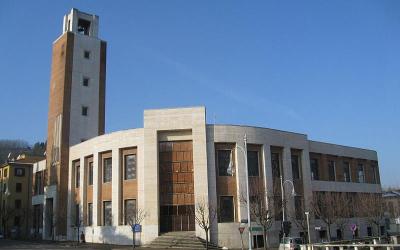Predappio museum to undo fascist pilgrims

ROME - The former House of Fascio shines light on a problem deep in the national soul of
To explain the symbolism behind the tower is to understand something of the issue I speak of. Mussolini created the fascist ideology in reference to
This gathering of fascists speaks to an issue at the heart of memorialising elements of the past, even if every effort is made to show the abhorrent nature of it, there is no guarantee that everyone will see it that way.
Indeed, there is something else. These shops sell what they refer to as “furher wine,” bottles of wine with either Hitler or Mussolini’s face on the label. It seems that this project, therefore, is a worthy one. This country has active political parties that identify as fascist, there are people that show up three times a year in this town to celebrate the march on
kvh



